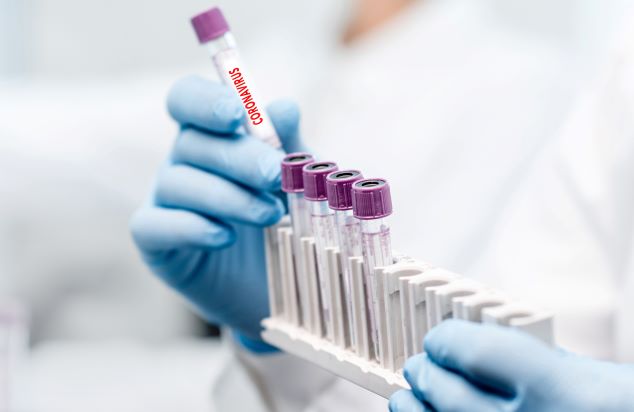The original vaccinations for COVID-19 induce potent antibodies that protect against SARS-CoV-2. But a new Northwestern Medicine study shows the antibodies generated by those prior vaccinations or infections can actually “hurt” the booster shots. That’s because these antibodies rapidly “mop up” the booster from the body, before it has a chance to stimulate the cells from the immune system.
“Those same antibodies that protect you against the virus also clear the vaccine very fast,” said lead study author Pablo Penaloza-MacMaster. “They think the vaccine is the virus.”
The study in humans and mice was published in Cell Reports.
“It is important to clarify that having antibodies and getting boosted is a good thing, so anyone who is due their booster shot should do so. We don’t want people to think otherwise,” said Penaloza-MacMaster, assistant professor of microbiology-immunology at Northwestern University Feinberg School of Medicine. “The study just pinpoints potential strategies by which next-generation vaccines could be tweaked to improve their efficacy, for example, by developing vaccines that bypass pre-existing antibodies.”
In a cohort of 85 people who had been vaccinated with the Moderna or Pfizer-BioNTech vaccines, Northwestern scientists found that lower antibody levels before a booster were associated with a higher-fold increase in antibody levels after the booster.
“This suggests that pre-existing antibodies induced by prior vaccinations may negatively affect the level of responses induced by mRNA booster vaccines,” Penaloza-MacMaster said.
The scientists’ subsequent studies in mice showed that antibodies generated by prior vaccinations accelerated the clearance of the vaccine from the body, limiting the amount of vaccine available to trigger new immune responses after the booster shot.
“In other words, the antibody responses generated after prior vaccinations rapidly wipe out the vaccine during a subsequent booster shot, limiting the immune response that can be generated by the booster shot,” Penaloza-MacMaster said. This was not caused simply by competition between antibodies and B cells for the vaccine antigen but seems to be the result of so called “antibody effector mechanisms” that clear foreign substances from the body.
In experiments in mice, scientists found the updated Omicron vaccines are superior to the original vaccines at clearing the Omicron infection, if the animal’s immune system has never “seen” the original SARS-CoV-2 via vaccination before. But the relative superiority of an Omicron vaccine is more limited if the animal has already had the original vaccine.
Why increasing time between vaccinations is important
The new findings also suggest why increasing time between vaccinations is beneficial for the immune response, Penaloza-MacMaster said. “We showed in prior studies – as did other labs – that the longer the interval between vaccinations, the better the response. It’s better to wait six months than two weeks before you boost, but the reasons for this were not clear. We have thought this could be simply due to the time-dependent maturation of the immune response. But another reason is that waning of antibodies would allow the booster to persist in the body for a longer time. If the booster shot in your muscle perdures for a longer time, you are likely to develop robust immune responses.”
These data could guide future vaccination regimens, he said.
Next step: temporarily block antibody activity to boost immune response to vaccine
“What excites me about this study is what we can learn in terms of how to make better booster vaccines,” Penaloza-MacMaster said. “This new basic mechanistic understanding can be used to improve mRNA boosters, which are being administered to millions of people worldwide.”
Because the experiments in this paper show that high levels of antibodies induced by prior vaccines or infections can be detrimental for vaccine boosters, the scientists plan new experiments to administer drugs that transiently block antibody activity. They plan to give these drugs at the time of boosting to allow the vaccine to be sensed better by immune cells.
“Although antibody responses are an essential component of the immune system, our data suggest that a very transient blockade of these responses during vaccination (for only a few hours) could have a profound beneficial effect on mRNA vaccines,” Penaloza-MacMaster said.
Other Northwestern authors on the study are: first author Tanushree Dangi (a scientist at the Penaloza laboratory), Sarah Sanchez, Min Han Lew, Bakare Awakoaiye, Lavanya Visvabharathy and Dr. Igor Koralnik.
The study was funded by grant DP2DA051912 from the National Institute on Drug Abuse of the National Institutes of Health.
Source: Northwestern University

















